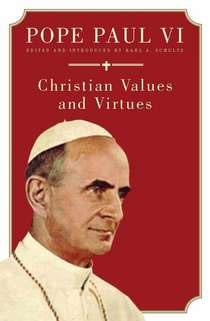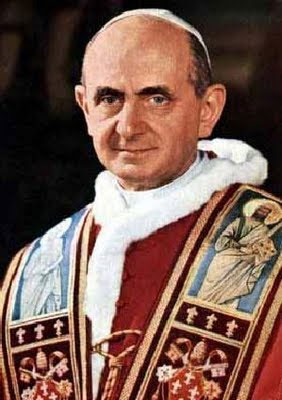Dr. Matthew Bunson discusses the life, times and work of  St. Ephrem of Syria
[powerpress]
For more on St. Ephrem and his teachings
- Nisibene Hymns  - Miscellaneous Hymns —
On the Nativity of Christ in the Flesh,
For the Feast of the Epiphany, and
On the Faith (“The Pearl”)Â Â -Â Homilies —
On Our Lord, On Admonition and Repentance,
and On the Sinful Woman
The figure of Ephrem is still absolutely timely for the life of the various Christian Churches. We discover him in the first place as a theologian who reflects poetically, on the basis of Holy Scripture, on the mystery of man’s redemption brought about by Christ, the Word of God incarnate. His is a theological reflection
expressed in images and symbols taken from nature, daily life and the Bible. Ephrem gives his poetry and liturgical hymns a didactic and catechetical character: they are theological hymns yet at the same time suitable for recitation or liturgical song. On the occasion of liturgical feasts, Ephrem made use of these hymns to spread Church doctrine. Time has proven them to be an extremely effective catechetical instrument for the Christian community.
Ephrem’s reflection on the theme of God the Creator is important: nothing in creation is isolated and the world, next to Sacred Scripture, is a Bible of God. By using his freedom wrongly, man upsets the cosmic order. The role of women was important to Ephrem. The way he spoke of them was always inspired with sensitivity and respect: the dwelling place of Jesus in Mary’s womb greatly increased women’s dignity. Ephrem held that just as there is no Redemption without Jesus, there is no Incarnation without Mary. The divine and human dimensions of the mystery of our redemption can already be found in Ephrem’s texts; poetically and with fundamentally scriptural images, he anticipated the theological background and in some way the very language of the great Christological definitions of the fifth-century Councils.
Ephrem, honoured by Christian tradition with the title “Harp of the Holy Spirit”, remained a deacon of the Church throughout his life. It was a crucial and emblematic decision: he was a deacon, a servant, in his liturgical ministry, and more radically, in his love for Christ, whose praises he sang in an unparalleled way, and also in his love for his brethren, whom he introduced with rare skill to the knowledge of divine Revelation.
For more visit Vatican.va
Dr. Matthew Bunson, Senior Fellow of the St. Paul Center for Biblical Theology, is one of the United States’ leading authorities on the papacy and the Church.
His books include: The Encyclopedia of Catholic History; The Encyclopedia of Saints; Papal Wisdom; All Shall Be Well; Encyclopedia of the Roman Empire; and The Angelic Doctor: The Life and World of St. Thomas Aquinas; The Pope Encyclopedia; We Have a Pope! Benedict XVI, the first Catholic biography of the Holy Father in the English language; the Encyclopedia of U.S. Catholic History; Pope Francis. Â His also the editor of OSV’s “The Catholic Answer” magazine.
Tags: Church, matthew bunson, Syria, work
This entry was posted on Monday, September 23rd, 2013 at 11:25 am
You can follow any responses to this entry through the RSS 2.0 feed.
Dr. Matthew Bunson discusses the life, times and work of  St. Athanasius of Alexandria
[powerpress]
For more on St. Athanasius of Alexandria and his teachings
AthanasiusÂ
-Â On the Incarnation of the Word
-Â Deposition of Arius
-Â Statement of Faith
-Â On Luke 10:22 (Matthew 11:27)
-Â Circular Letter
-Â Apologia Contra Arianos
-Â De Decretis
-Â De Sententia Dionysii
-Â Vita S. Antoni (Life of St. Anthony)
-Â Ad Episcopus Aegypti et Libyae
-Â Apologia ad Constantium
-Â Apologia de Fuga
-Â Historia Arianorum
-Â Four Discourses Against the Arians
-Â De Synodis
-Â Tomus ad Antiochenos
-Â Ad Afros Epistola Synodica
-Â Historia Acephala
-Â Letters
Athanasius was undoubtedly one of the most important and revered early Church Fathers. But this great Saint was above all the impassioned theologian of the Incarnation of the Logos, the Word of God who – as the Prologue of the fourth Gospel says – “became flesh and dwelt among us” (Jn 1: 14).
For this very reason Athanasius was also the most important and tenacious adversary of the Arian heresy, which at that time threatened faith in Christ, reduced to a creature “halfway” between God and man, according to a recurring tendency in history which we also see manifested today in various forms.
In all likelihood Athanasius was born in Alexandria, Egypt, in about the year 300 A.D. He received a good education before becoming a deacon and secretary to the Bishop of Alexandria, the great Egyptian metropolis. As a close collaborator of his Bishop, the young cleric took part with him in the Council of Nicaea, the first Ecumenical Council, convoked by the Emperor Constantine in May 325 A.D. to ensure Church unity. The Nicene Fathers were thus able to address various issues and primarily the serious problem that had arisen a few years earlier from the preaching of the Alexandrian priest, Arius.
With his theory, Arius threatened authentic faith in Christ, declaring that the Logos was not a true God but a created God, a creature “halfway” between God and man who hence remained for ever inaccessible to us. The Bishops gathered in Nicaea responded by developing and establishing the “Symbol of faith” [“Creed”] which, completed later at the First Council of Constantinople, has endured in the traditions of various Christian denominations and in the liturgy as the Niceno-Constantinopolitan Creed.
In this fundamental text – which expresses the faith of the undivided Church and which we also recite today, every Sunday, in the Eucharistic celebration – the Greek term homooúsiosis featured, in Latin consubstantialis: it means that the Son, the Logos, is “of the same substance” as the Father, he is God of God, he is his substance. Thus, the full divinity of the Son, which was denied by the Arians, was brought into the limelight.
For more visit Vatican.va
Dr. Matthew Bunson, Senior Fellow of the St. Paul Center for Biblical Theology, is one of the United States’ leading authorities on the papacy and the Church.
His books include: The Encyclopedia of Catholic History; The Encyclopedia of Saints; Papal Wisdom; All Shall Be Well; Encyclopedia of the Roman Empire; and The Angelic Doctor: The Life and World of St. Thomas Aquinas; The Pope Encyclopedia; We Have a Pope! Benedict XVI, the first Catholic biography of the Holy Father in the English language; the Encyclopedia of U.S. Catholic History; Pope Francis. Â His also the editor of OSV’s “The Catholic Answer” magazine.
Tags: Church, church fathers, faith, matthew bunson, work
This entry was posted on Friday, September 6th, 2013 at 11:15 am
You can follow any responses to this entry through the RSS 2.0 feed.
Bruce and I had a conversation with Karl Schultz, editor of  “Christian Values and Virtues”  comprised of   Pope Paul VI’s 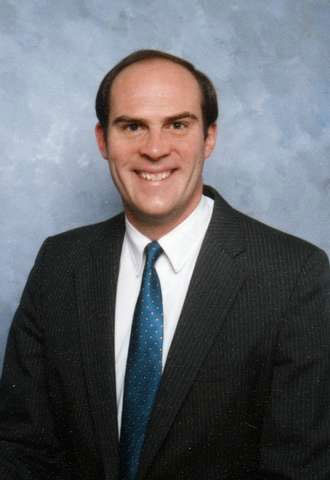 teachings on peace, hope, humility, faith, suffering, love, and joy as comprised through his public audiences and his writings. Karl also shares little known things about Pope Paul VI. This book is a must read for those interested in understanding the impact of Pope Paul VI’s papacy on the modern Catholic Church.
teachings on peace, hope, humility, faith, suffering, love, and joy as comprised through his public audiences and his writings. Karl also shares little known things about Pope Paul VI. This book is a must read for those interested in understanding the impact of Pope Paul VI’s papacy on the modern Catholic Church.
You can find the book here
Tags: catholic church, faith, joy, karl schultz, pope paul vi
This entry was posted on Tuesday, August 6th, 2013 at 9:53 am
You can follow any responses to this entry through the RSS 2.0 feed.
“Americanization ” is a very important concept to comprehend when trying to understand the state of the Roman Catholic Church in America. In “American 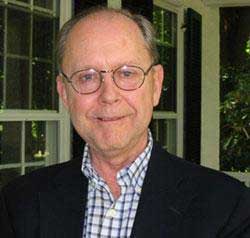 Church: The Remarkable Rise, Meteoric Fall, and Uncertain Future of Catholicism in America” offers that many of the benefits of cultural assimilation exprienced by Catholic immigrants to the U.S.,  around the turn of the last century, were good.  However, the secular culture has threatened the “Catholic identity” of millions of faithful and of their institutions, such as schools, universities, and hospitals.
Church: The Remarkable Rise, Meteoric Fall, and Uncertain Future of Catholicism in America” offers that many of the benefits of cultural assimilation exprienced by Catholic immigrants to the U.S.,  around the turn of the last century, were good.  However, the secular culture has threatened the “Catholic identity” of millions of faithful and of their institutions, such as schools, universities, and hospitals.
Rich in in history, which points potentially to the future, Russell Shaw helps us to see the disturbing aspects of the Church in America today, while offering hopeful outcomes for the future. Â A very important book, indeed!
[powerpress]
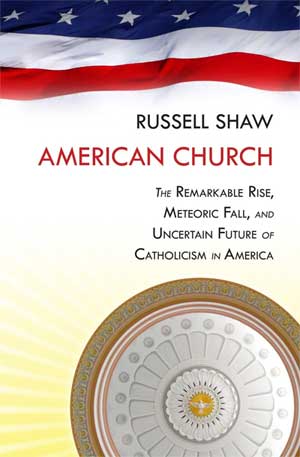 You can find the book here
You can find the book here
“Russell Shaw is one of the best informed and most articulate observers of the American Catholic experience; a writer of elegant clarity, fairness and impeccable research. If you want to understand the Church in the United States and the challenges she now faces, American Church should be on the short list of books you need to read.”
+Charles J. Chaput, O.F.M. Cap., Archbishop of Philadelphia
“The new bull-in-the-china-shop of U.S. Catholic history, Russell Shaw upends pedestals, reimagines story-lines, and invites all of us to think again about the roots of the severe challenges — and great opportunities — facing the Church in the United States in the first decades of the third millennium.” —-George Weigel, author of Evangelical Catholicism: Deep Reform in the 21st-Century Church
Tags: catholic, catholic podcast, catholic prayer
This entry was posted on Sunday, May 12th, 2013 at 5:51 pm
You can follow any responses to this entry through the RSS 2.0 feed.
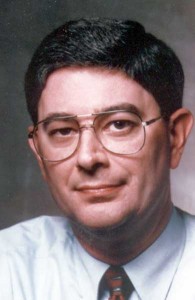 At stunning moment in the recent history of the Catholic Church, the resignation of Pope Benedict XVI as Supreme Pontiff of the Roman Catholic Church effective February 28, we had the opportunity to George Weigel before his departure for Rome to be, once again, a witness to history.  In “Evangelical Catholicism:  Deep Reform in the 21st-Century Church” he writes of this particular moment in the life of the Catholic Church.  Our conversation centers on the Papacy and its future.  I cannot encourage listeners more highly to pick up a copy of this book; it is extraordinarily compelling and filled with hopeful certainty concerning the future course of this great “barque of Peter”.  Don’t miss!!!
At stunning moment in the recent history of the Catholic Church, the resignation of Pope Benedict XVI as Supreme Pontiff of the Roman Catholic Church effective February 28, we had the opportunity to George Weigel before his departure for Rome to be, once again, a witness to history.  In “Evangelical Catholicism:  Deep Reform in the 21st-Century Church” he writes of this particular moment in the life of the Catholic Church.  Our conversation centers on the Papacy and its future.  I cannot encourage listeners more highly to pick up a copy of this book; it is extraordinarily compelling and filled with hopeful certainty concerning the future course of this great “barque of Peter”.  Don’t miss!!!
[powerpress]
You can find the book here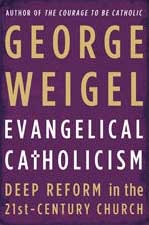
Timothy Cardinal Dolan, Archbishop of New York
“This sparkling read puts all the old Church-labels—liberal vs. conservative, progressive vs. traditionalist, pre- vs. post-Vatican II—in the shredder. Now there is only one valid adjective for all of us: evangelical! Simply put, this means we take our baptismal promises with the utmost seriousness. Like the Samaritan woman, we’ve met a man—Jesus—who has changed our lives.â€
Charles J. Chaput, O.F.M. Cap., Archbishop of Philadelphia
“George Weigel has been the leading diarist of authentic Catholic renewal—its progress, detours, personalities, and hopes—for 30 years. In Evangelical Catholicism he turns his extraordinary skills to the needs of the Church in the coming decades, calling us back to the missionary vocation we received at baptism and offering us a road map to faithful, vigorous Church reform. Rich in its vision, engaging in style, on target in its counsel and invaluable for anyone trying to understand the Church and her challenges in the 21st Century, this book should not be missed.â€
Mary Ann Glendon, author of The Forum and the Tower: How Scholars and Politicians have Imagined the World, from Plato to Eleanor Roosevelt
“This remarkable book offers nothing less than a map and compass for men and women determined to take up the challenge of living the Catholic faith in its fullness under 21st-century conditions. With its bold call for ‘deep reform’ in every single corner of the Church, Evangelical Catholicism is sure to provoke lively discussion. The book’s proposals for true renewal are presented with the clarity and verve that have made George Weigel a peerless advocate of the courage to be Catholic.â€
Tags: catholic, catholic podcast, catholic prayer
This entry was posted on Wednesday, February 13th, 2013 at 12:44 pm
You can follow any responses to this entry through the RSS 2.0 feed.
I could have listened to Dr. James Hitchcock all day, he is absolutely fascinating. Â But the next best thing is to read his tremendous 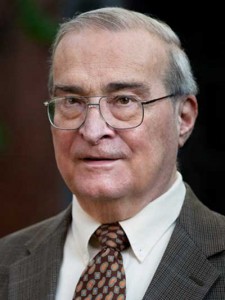 work, “The History of the Catholic Church:Â Â From the Apostolic Age to the Third Millennium”. Â The content is the best, the layout makes it so very accessible, and the storytelling is engaging…a must have and a perfect gift for family and friends! Â In our discussion, we discuss the influence of the papacy, Constantine, the 13th and 15th century, St. Augustine and St. Thomas Aquinas, and so much more. Â Not enough time, but so much fun. Â Don’t miss! Â One of my favorites of 2012!
work, “The History of the Catholic Church:Â Â From the Apostolic Age to the Third Millennium”. Â The content is the best, the layout makes it so very accessible, and the storytelling is engaging…a must have and a perfect gift for family and friends! Â In our discussion, we discuss the influence of the papacy, Constantine, the 13th and 15th century, St. Augustine and St. Thomas Aquinas, and so much more. Â Not enough time, but so much fun. Â Don’t miss! Â One of my favorites of 2012!
[powerpress]
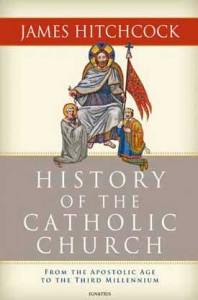 You can find the book here
You can find the book here
“For years, James Hitchcock has been our premier historian – a dissident from conventional wisdom, well-armed and solid. Here he pioneers a new method for presenting a long sweep of history: an orderly and altogether fascinating series of vignettes – of arguments, movements, distinctive persons, and concrete events. There is just enough narrative in these sequences to carry the reader along, but without involving her in excessive interpretation. This book provides both a great resource for easy reference, and a stimulating definition of a Christian humanism that holds in tension the transcendent and the down to earth, the holy and the sinful. This is a tension which Hitchcock maintains throughout.”
– Michael Novak
Tags: family, James Hitchcock, papacy, thomas aquinas, work
This entry was posted on Thursday, December 20th, 2012 at 1:57 pm
You can follow any responses to this entry through the RSS 2.0 feed.
“The Seven Big Myths About the Catholic Church: Distinguishing Fact from Fiction about Catholicism” Â by Dr. Christopher Kaczor is a 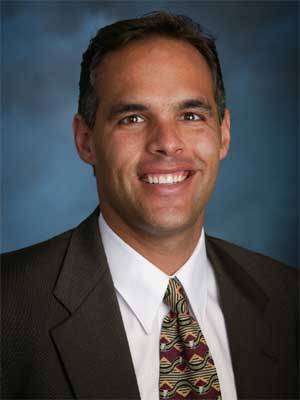 must have resource for Catholics!
must have resource for Catholics!
The misconceptions about our faith are so prevalent in today’s society that is almost guaranteed that you will encounter at least one of these myths in daily conversations with friends, co-workers, and sadly to say, family members.  To have the peace of mind, in order to answer the objection, is invaluable, especially when we are called to the New Evangelization.  But even more than that, Dr. Kaczor helps us to give a reason for our hope…the presence of Jesus Christ and His saving grace and mercy found in our Roman Catholic faith.
[powerpress]
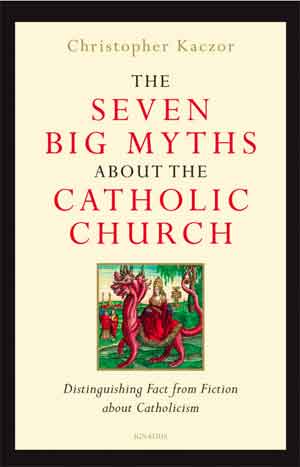 You can find the book here
You can find the book here
The Seven Myths:
The Church Opposes Science: The Myth of Catholic Irrationality
The Church Opposes Freedom and Happiness: The Myth of Catholic Indifference to Earthly Welfare
The Church Hates Women: The Myth of Catholic Misogyny
Indifferent to Love, the Church Banned Contraception: The Myth of Opposition between Love and Procreation
The Church Hates Gays: The Myth of Catholic “Homophobia”
The Church Opposes Same-Sex Marriage Because of Bigotry: The Myth That There Is No Rational Basis for Limiting Marriage to One Man and One Woman
Priestly Celibacy Caused the Crisis of Sexual Abuse of Minors: The Myth of Priestly Pedophilia
“All of this book is full of clarity and charity, but two chapters are masterpieces, each worth ten times the price of the whole book. The chapter on contraception is the most simple, commonsensical, winsome and persuasive I have ever seen. It could have been written only by a very good and wise husband and father. The chapter on same-sex marriage has the clearest and the completest logic I have ever read on the subject.” —Peter Kreeft, Boston College
Tags: catholic church, Catholic Irrationality The Church Opposes Freedom, Christopher Kaczor
This entry was posted on Monday, December 10th, 2012 at 7:22 am
You can follow any responses to this entry through the RSS 2.0 feed.
[powerpress]
This entry was posted on Sunday, July 15th, 2012 at 9:43 pm
You can follow any responses to this entry through the RSS 2.0 feed.
[powerpress]
This entry was posted on Sunday, July 15th, 2012 at 9:02 pm
You can follow any responses to this entry through the RSS 2.0 feed.
[powerpress]
This entry was posted on Sunday, July 15th, 2012 at 8:58 pm
You can follow any responses to this entry through the RSS 2.0 feed.
[powerpress]
This entry was posted on Sunday, July 15th, 2012 at 8:50 pm
You can follow any responses to this entry through the RSS 2.0 feed.
[powerpress]
This entry was posted on Sunday, July 15th, 2012 at 8:48 pm
You can follow any responses to this entry through the RSS 2.0 feed.
[powewrpress]
This entry was posted on Sunday, July 15th, 2012 at 8:45 pm
You can follow any responses to this entry through the RSS 2.0 feed.
[powerpress]
This entry was posted on Sunday, July 15th, 2012 at 8:43 pm
You can follow any responses to this entry through the RSS 2.0 feed.
[powerpress]
This entry was posted on Sunday, July 15th, 2012 at 8:38 pm
You can follow any responses to this entry through the RSS 2.0 feed.

